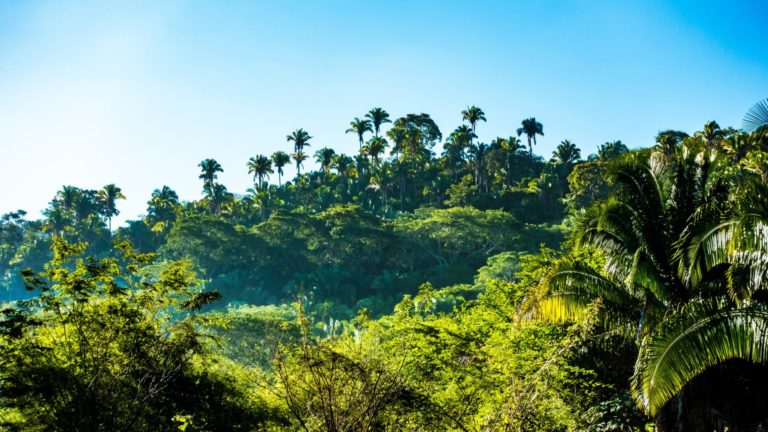Ecotourism has gained popularity in recent years as more and more people become aware of the importance of sustainable tourism. It aims to minimize the negative impacts of tourism on the environment and local communities while providing unique and enriching experiences for the traveler. But what exactly is ecotourism, and what are the different types of it? This article will explore the various types of ecotourism, including hard and soft ecotourism, cultural ecotourism, educational ecotourism, and volunteer ecotourism.
What is Ecotourism?
Ecotourism is a form of sustainable tourism that focuses on the conservation of natural resources and the preservation of local cultures. It aims to educate travelers about the importance of protecting the environment while providing them with an opportunity to participate in activities that contribute to the well-being of the local community. Some of the key principles of ecotourism include minimizing the impact on the environment, supporting conservation efforts, respecting local cultures, and providing economic benefits to local communities.
Ecotourism destinations are often located in remote, pristine, or protected areas, and they usually offer a wide range of activities, such as wildlife watching, hiking, and cultural experiences. Ecotourism packages are designed to provide travelers with unique and authentic experiences while ensuring that their visit has a positive impact on the environment and local communities.
Hard Ecotourism
Hard ecotourism is one of the types of ecotourism that involves more challenging and adventurous activities, such as trekking, mountain climbing, or white-water rafting. These activities usually require a higher level of physical fitness, specialized skills, and a greater commitment to environmental conservation. Hard ecotourists often travel to remote and pristine areas that are less frequented by tourists, which allows them to experience nature in its purest form.
Hard ecotourism activities are designed to minimize the impact on the environment and local communities, and they often involve small groups of travelers who are guided by experienced and knowledgeable local guides. These guides play a crucial role in educating travelers about the importance of preserving the natural environment and respecting local customs and traditions.
The main goal of hard ecotourism is to provide the traveler with a deeper and more meaningful connection to nature, allowing them to appreciate its beauty and understand the importance of preserving it for future generations. Some popular hard ecotourism destinations include the Amazon Rainforest, the Galapagos Islands, and the Himalayan region.
Soft Ecotourism
Soft ecotourism, on the other hand, is a more relaxed and less physically demanding form of ecotourism. It is focused on providing travelers with a comfortable and enjoyable experience while still adhering to the principles of sustainable tourism. Soft ecotourism activities may include wildlife watching, nature walks, birdwatching, or cultural tours.
Soft ecotourists are typically more interested in the educational and cultural aspects of ecotourism, rather than the physical challenges and adventure. They often prefer to stay in comfortable accommodations, such as eco-lodges or boutique hotels, designed to minimize their environmental impact and support local communities.
Soft ecotourism destinations can be found all over the world, from the African savannah to the rainforests of Central America. Some popular soft ecotourism destinations include Costa Rica, Kenya, and the Great Barrier Reef.
Cultural Ecotourism
Cultural ecotourism is a type of ecotourism that focuses on the exploration and appreciation of local cultures and traditions. It aims to provide travelers with a deeper understanding of the history, customs, and beliefs of the people living in the regions they visit. Cultural ecotourists often participate in activities that allow them to interact with local communities, such as attending traditional ceremonies, visiting local markets, or learning about indigenous crafts and arts.
Cultural ecotourism is not only about preserving the environment, but also about respecting and preserving the cultural heritage of the destinations visited. By promoting the sharing of knowledge and understanding between different cultures, cultural ecotourism can contribute to the creation of a more tolerant and inclusive world.
Some popular cultural ecotourism destinations include Bali, Morocco, and the Native American reservations in the United States.
Educational Ecotourism
Educational ecotourism is a type of ecotourism that focuses on providing travelers with opportunities to learn about the environment, local cultures, and conservation efforts. It often involves guided tours, workshops, or lectures led by experts in fields such as ecology, biology, or anthropology. Educational ecotourism can be a valuable tool for raising awareness about environmental issues and promoting sustainable practices among tourists and local communities.
Educational ecotourism is suitable for travelers of all ages, including families, students, and professionals. It offers a unique opportunity to gain a deeper understanding of the natural world and the challenges it faces while fostering a sense of responsibility and commitment to environmental conservation.
Some popular educational ecotourism destinations include the Galapagos Islands, the Amazon Rainforest, and the Great Barrier Reef.
Volunteer Ecotourism
Volunteer ecotourism, also known as voluntourism, is a type of ecotourism that allows travelers to contribute their time and skills to support conservation projects and community development initiatives. Volunteer ecotourists often participate in activities such as wildlife monitoring, habitat restoration, or teaching English to local children.
Volunteer ecotourism provides travelers with a unique opportunity to make a positive impact on the environment and local communities while gaining valuable skills and experiences. It can be a fulfilling and rewarding experience for those who are passionate about environmental conservation and social justice.
Some popular volunteer ecotourism destinations include Costa Rica, South Africa, and Thailand.
Conclusion
In conclusion, ecotourism is a diverse and multifaceted form of sustainable tourism that offers travelers a wide range of unique and enriching experiences. Whether you are interested in adventure, culture, education, or volunteering, there is a type of ecotourism that suits you. By choosing to engage in ecotourism activities and support ecotourism destinations, you can contribute to the preservation of our planet’s natural and cultural heritage while creating unforgettable memories.

